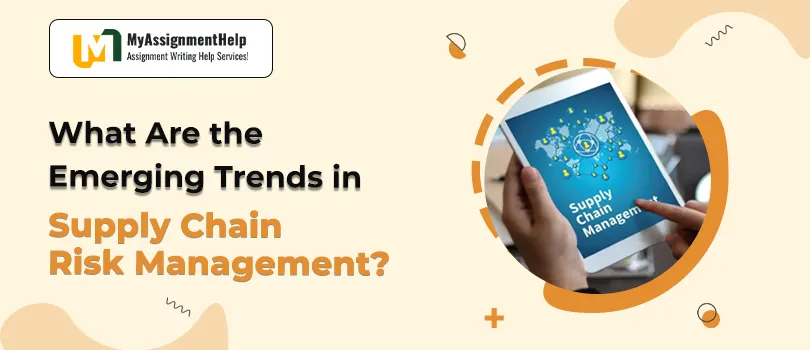In today’s rapidly evolving business landscape, supply chain management plays a pivotal role in ensuring the smooth flow of goods and services. However, with increasing globalization, technological advancements, and unforeseen disruptions like pandemics and natural disasters, the complexity and risks associated with supply chains have also escalated. In this blog post, we’ll delve into the emerging trends in supply chain risk management and explore how organizations are leveraging innovative approaches to mitigate risks effectively.

Predictive Analytics and AI:
With the advent of big data and artificial intelligence (AI), predictive analytics has become a game-changer in supply chain risk management. By analyzing historical data, market trends, and external factors, organizations can anticipate potential disruptions and proactively develop contingency plans. AI-powered algorithms can identify patterns and anomalies, enabling swift decision-making and risk mitigation strategies. Companies are increasingly integrating AI-driven predictive analytics into their supply chain management systems to enhance agility and resilience.
Supply Chain Management Blended with Digitalization:
Digitalization has revolutionized supply chain management by offering real-time visibility and transparency across the entire supply chain network. Through the integration of digital technologies such as blockchain, Internet of Things (IoT), and cloud computing, organizations can track the movement of goods, monitor inventory levels, and manage supplier relationships more efficiently. This blended approach to supply chain management blended not only enhances operational efficiency but also enables better risk identification and mitigation.
Supplier Diversification and Resilience:
Recognizing the risks associated with overreliance on a single supplier or geographic region, organizations are increasingly adopting supplier diversification strategies to enhance resilience. By collaborating with multiple suppliers across different locations, companies can mitigate the impact of supply chain disruptions caused by geopolitical events, trade disputes, or natural disasters. Moreover, fostering strong partnerships with suppliers and implementing robust risk assessment frameworks are critical for building a resilient supply chain ecosystem.
Sustainability and Ethical Sourcing:
In recent years, there has been a growing emphasis on sustainability and ethical sourcing practices in supply chain management. Consumers are increasingly demanding transparency regarding the origin and production processes of products, prompting companies to prioritize sustainable and ethically sourced materials. By integrating sustainability criteria into supplier selection and procurement processes, organizations can reduce environmental risks, enhance brand reputation, and foster long-term sustainability across the supply chain.
Collaborative Risk Management Networks:
Traditional approaches to supply chain risk management often focused on individual organizations’ risk exposure. However, in today’s interconnected business environment, collaborative risk management networks are gaining traction. By sharing information, best practices, and resources within industry consortia or supply chain partnerships, companies can collectively address common risks and enhance overall resilience. Collaborative risk management fosters a culture of trust and collaboration among supply chain stakeholders, enabling faster response times and effective risk mitigation strategies.
In conclusion, as supply chains become increasingly complex and interconnected, effective risk management is paramount for ensuring business continuity and resilience. By embracing emerging trends such as predictive analytics, digitalization, supplier diversification, sustainability, and collaborative risk management networks, organizations can proactively identify and mitigate supply chain risks. As the landscape continues to evolve, staying abreast of these trends and leveraging innovative approaches will be essential for navigating the uncertainties of the global marketplace.
For further insights and assistance with supply chain management assignments, consider reaching out to My Assignment Help. With their expertise in the field, they can provide valuable guidance and support to help you excel in your academic endeavors and understand the intricacies of supply chain risk management.





